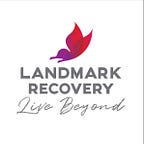Signs and Symptoms Of Opioid Overdose
Opioid overdose can occur when a victim misuses a prescription opioid or an illicit drug. If you or a loved one is at risk for opioid overdose, then you need to be aware of the signs and symptoms.
What Are Opioids?
Opioids, sometimes called narcotics, are a class of pain medications. They are prescribed when someone has pain after surgery, an accident, or acute pain. The drug works by blocking pain messages that are sent to the brain from the body. Opioid drugs available legally by prescription include oxycodone, morphine, hydrocodone, and codeine, to name a few. However, people who use opioids are at risk of opioid addiction and dependence, as well as an overdose when misused.
Signs And Symptoms Of Opioid Overdose
An opioid overdose can be dangerous, but if medical treatment is sought immediately, opioid overdoses are not fatal. Knowing the common signs and symptoms of opioid overdose can potentially save your life or someone you love. Overdose can typically be spotted through:
· Unconsciousness: The individual does not react to stimuli and does not exhibit motor functions.
· Imperceptible pupils: If the iris dominates the eye with little to no sign of the pupil, then the individual may be overdosing opioids.
· Hypoventilation: Slow respiration rates and lungs do not entirely expand and contract. Keep close attention on minimal chest rising and falling.
Additional signs and symptoms may include:
· Clammy skin
· Faint heartbeat
· Limp extremities
· Paleness in the face
· Vomiting or prolonged nausea
· Purple or blue fingernails and lips
· Inability to speak or only to speak in garbled words
Seek emergency medical help immediately if any of these symptoms present in an opioid user.
Dangers Of Opioid Abuse And Addiction
Opioids are highly addictive but can be used safely for short periods under the care of a physician. Abuse of opioids can make the brain and body believe that the drug is required to survive. The initial dose of opioids will no longer achieve the same effect for those who have developed a dependency on opioids. An individual will often consume even more than prescribed to find relief. This dependency can lead to addiction.
Withdraw is another reason people find it difficult to come off opioids. The withdrawal symptoms of opioids can be very unpleasant and painful if the drug is stopped all of a sudden. An individual will continue using these drugs because of the withdrawal symptom. Opioids withdrawal symptoms include vomiting, hallucinations, diarrhea, muscle and bone pain, high blood pressure, cold flashes, problems sleeping, intense cravings for the drug, and many more.
Opioid Overdose Treatment
It’s easy to overdose on opioids. Treatment for an opioid overdose is based on the individual’s condition. An individual that has overdosed will always need to go through detoxification. Each patient will get individualized counseling and a program that is specific to his or her unique needs. To learn more about opioid overdose or to get more information on opioid addiction, you can contact us anytime!
